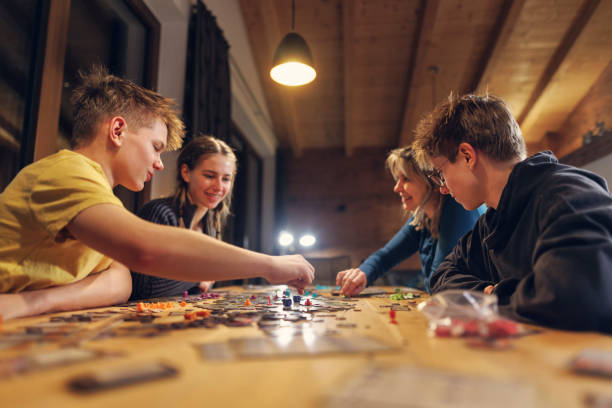The Art of Play — Keeping Our Minds Curious in an AI World
As we enter adulthood, many people lose touch with playful activities and hobbies that kept their minds sharp and happy as kids. In today’s fast-paced, AI-driven world, our calendars are packed, and “me-time” often takes a backseat. But did you know that our brains never stop learning? Thanks to neuroplasticity, adults can build new neural pathways by challenging their minds and staying curious—even well into their 40s, 60s, or 70s.
Why Play Matters For Mental Health
Play isn’t just for kids. Board games, for example, are scientifically proven to boost mental well-being, improve memory, enhance cognitive function, and reduce stress. These games force us to think strategically, connect with others, and exercise creativity—skills that AI may never truly replace.
Busting Myths About Board Games
-
Board games aren’t just Monopoly or Uno: The global board game scene now offers thousands of modern titles focusing on strategy, storytelling, psychology, and collaboration.
-
Board games are for all ages: Adults who play regularly benefit from improved focus, social intelligence, empathy, and stress relief.
-
Games are more than entertainment: They help build communication, patience, and creative problem-solving abilities—critical skills in professional and personal life.
Examples That Prove The Point
Modern board games like Ticket to Ride, Catan, and Risk challenge your mind in unique ways:
-
Ticket to Ride encourages strategic planning and resource management.
-
Catan develops negotiation, risk assessment, and adaptability.
-
Risk sharpens executive function and decision-making under pressure.
Why Play Is Essential In The Age of AI
While AI is making information and processes faster, true creativity and human connection come from play—the ability to think differently, imagine, and connect with others. Board games offer:
-
Social connection: Playing together strengthens relationships and teamwork.
-
Cognitive exercise: Engaging in games keeps the brain agile and helps prevent memory loss.
-
Emotional well-being: Laughter and fun reduce anxiety, promote mindfulness, and support long-term happiness.






